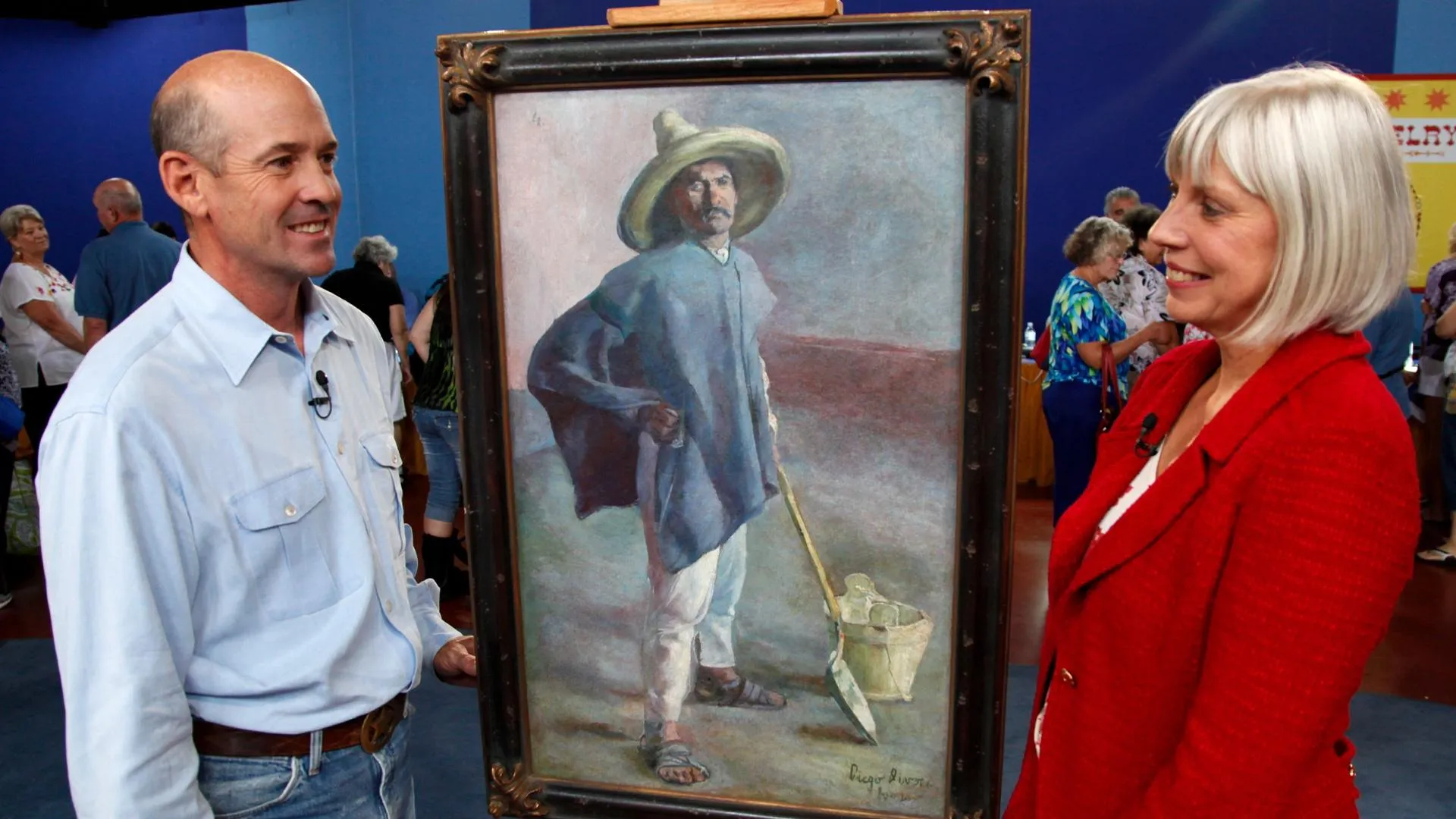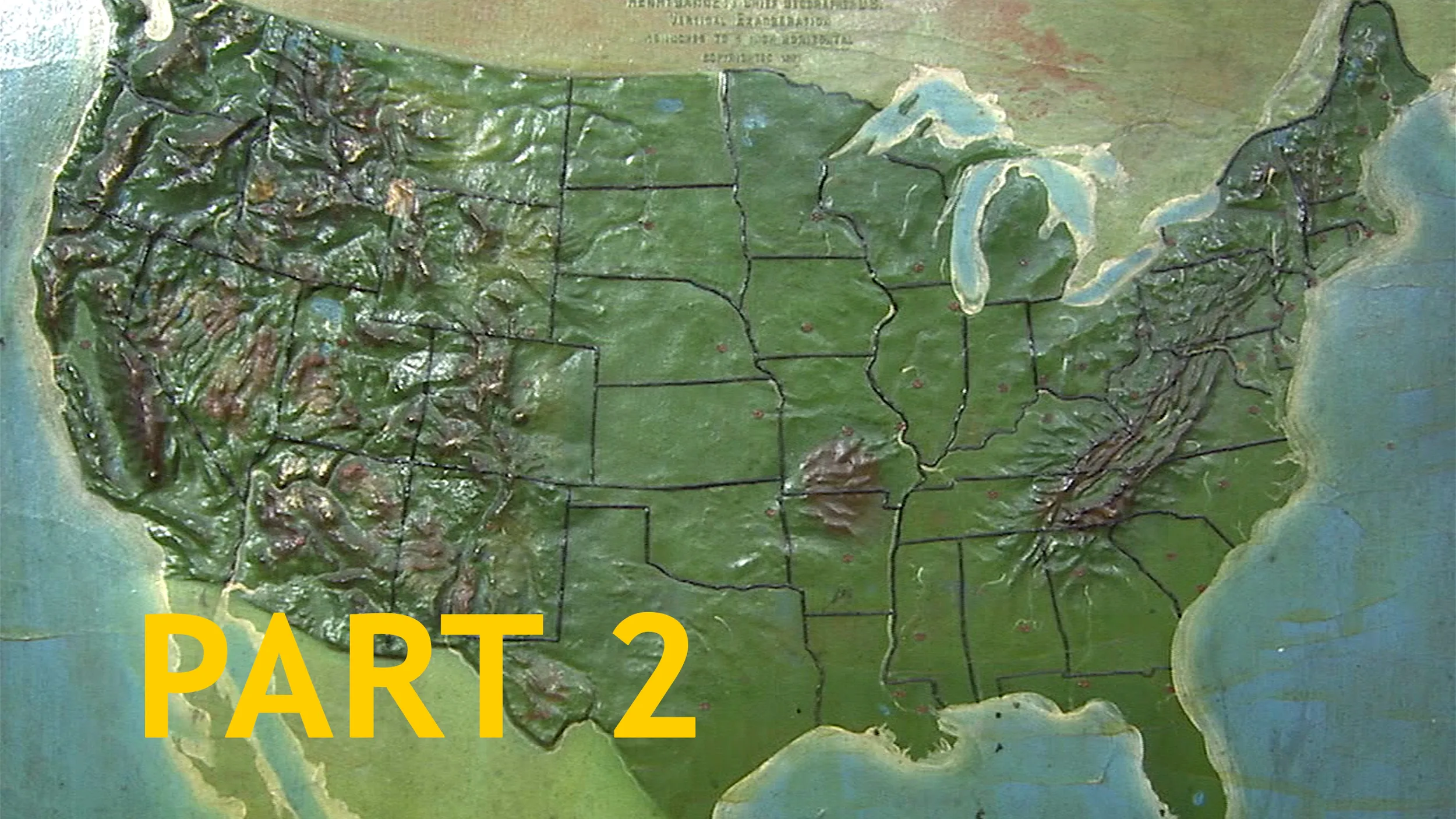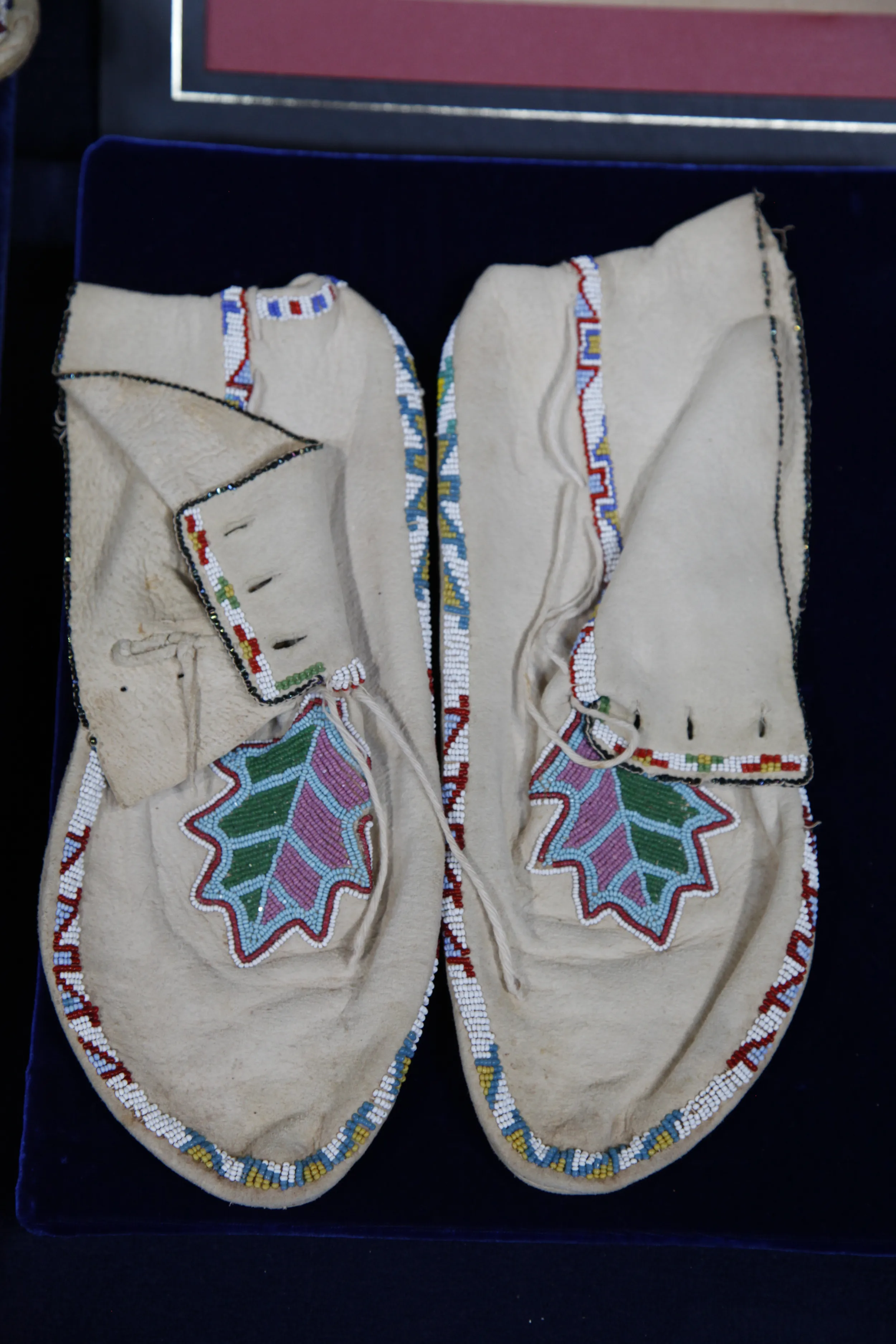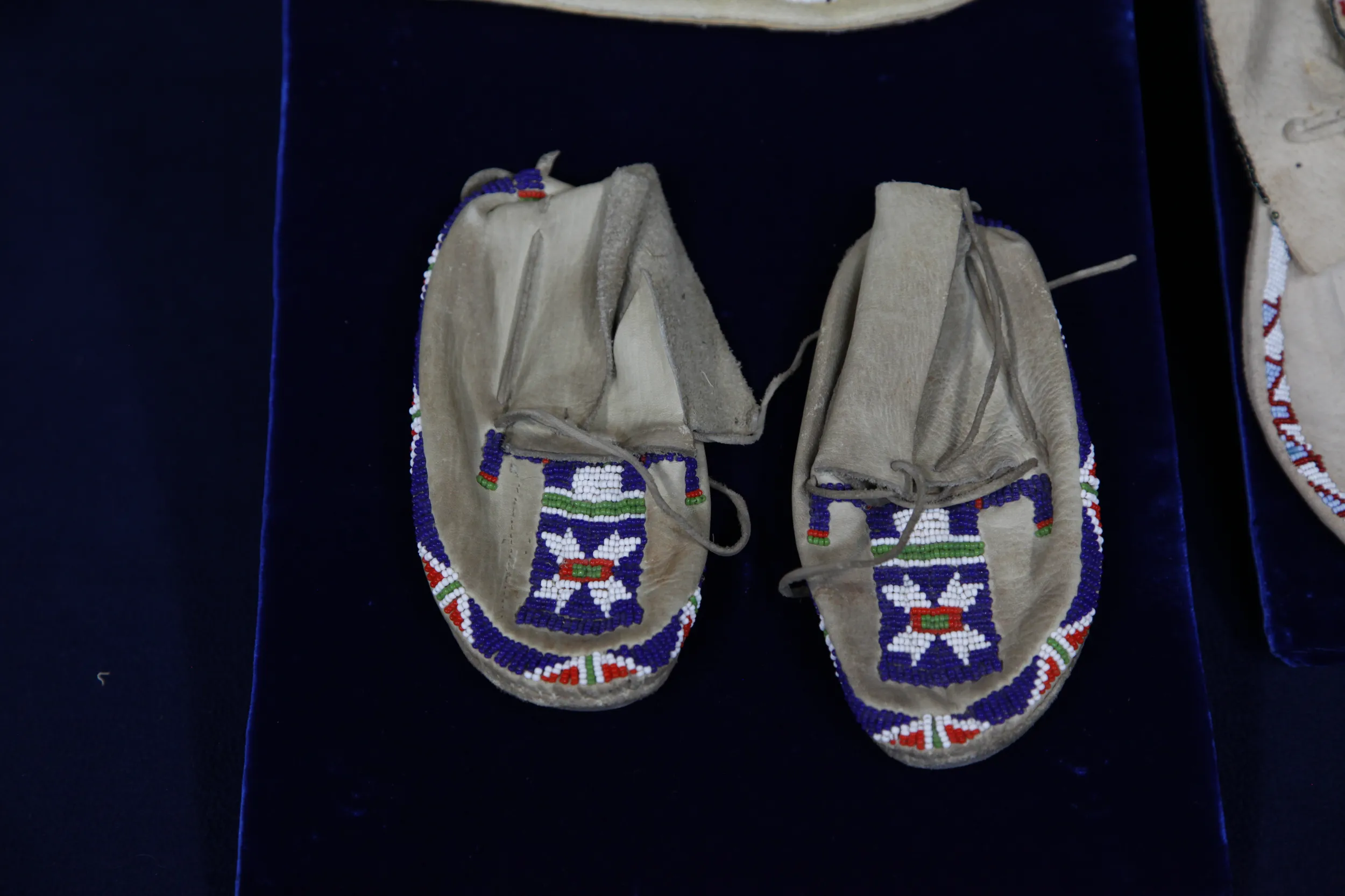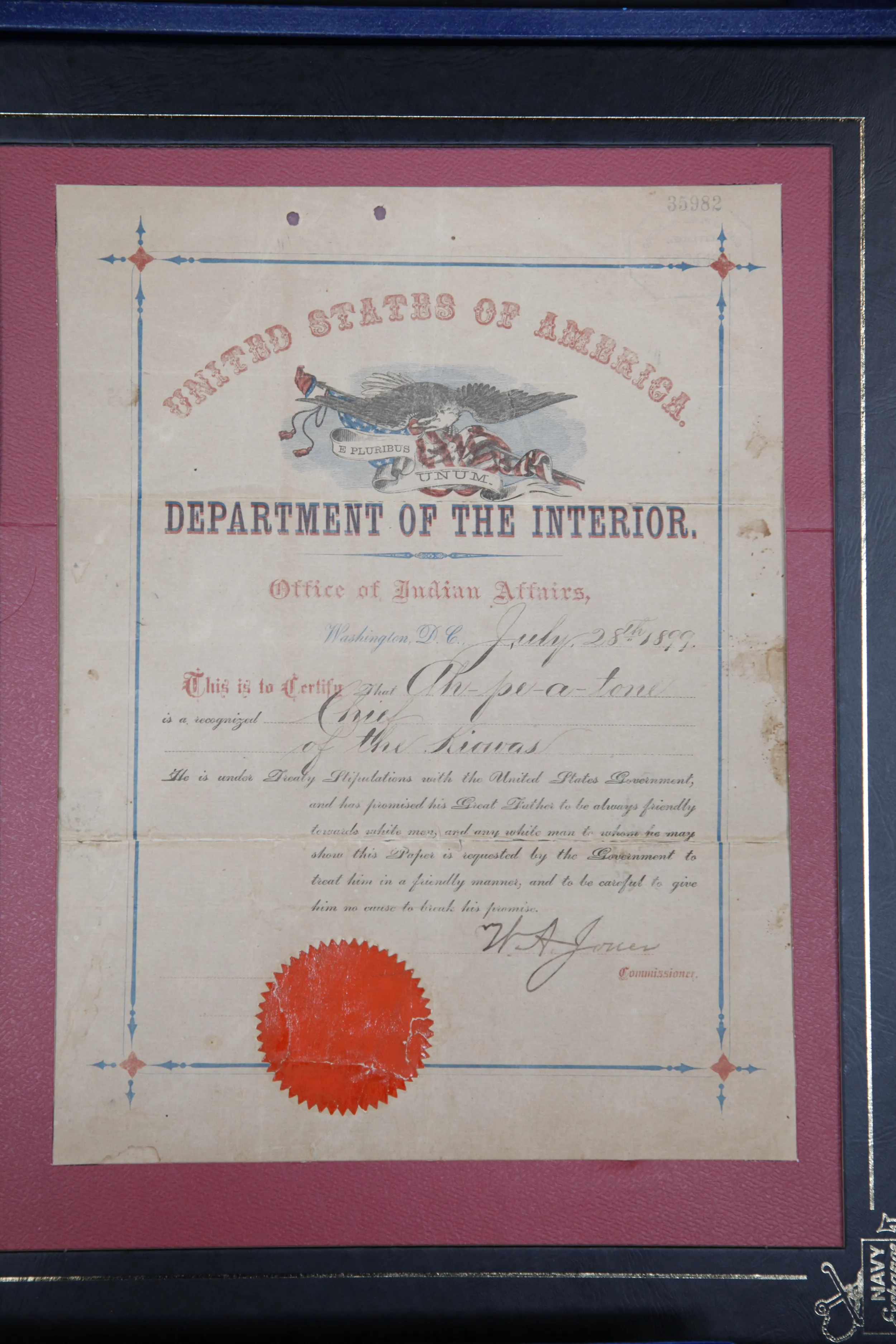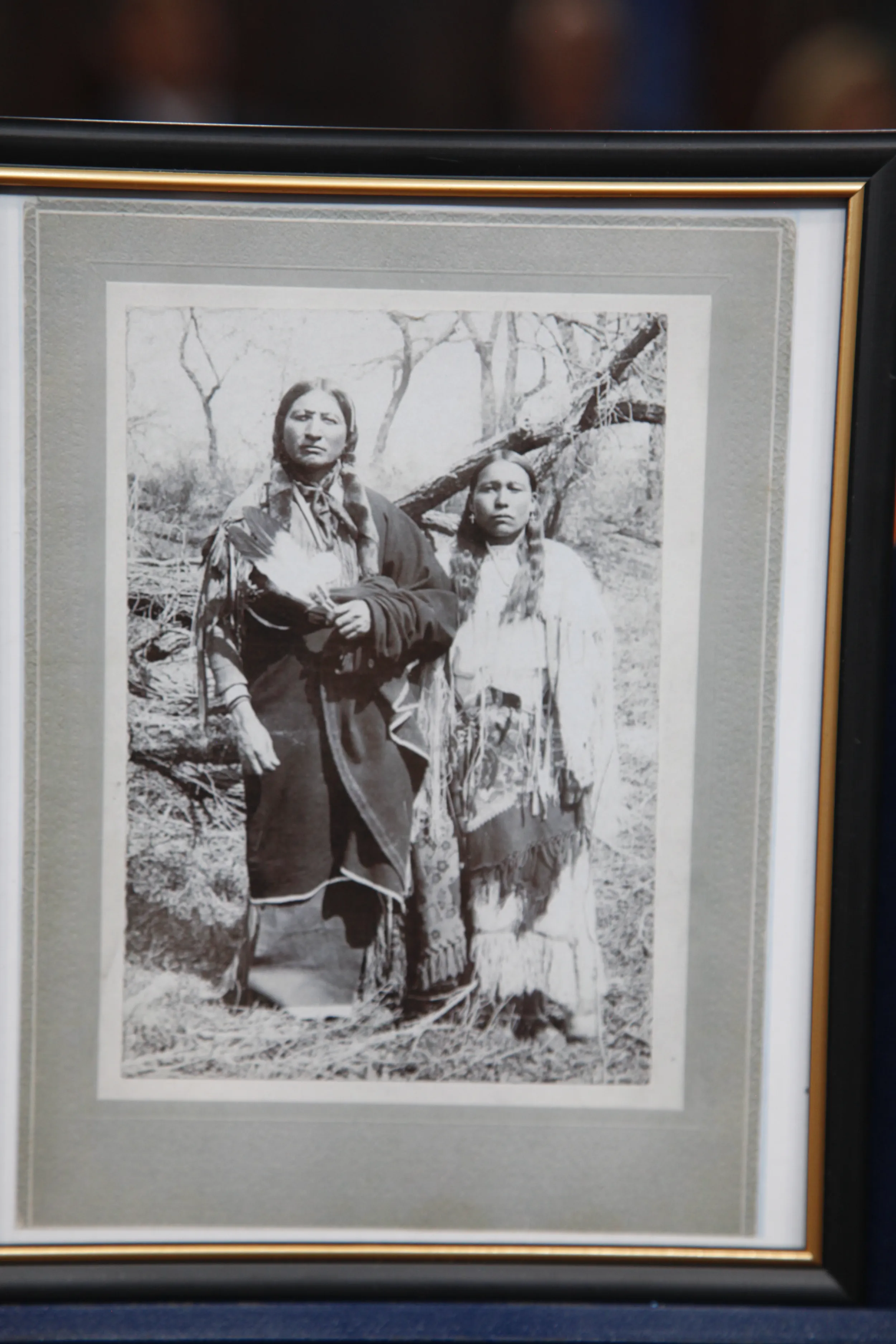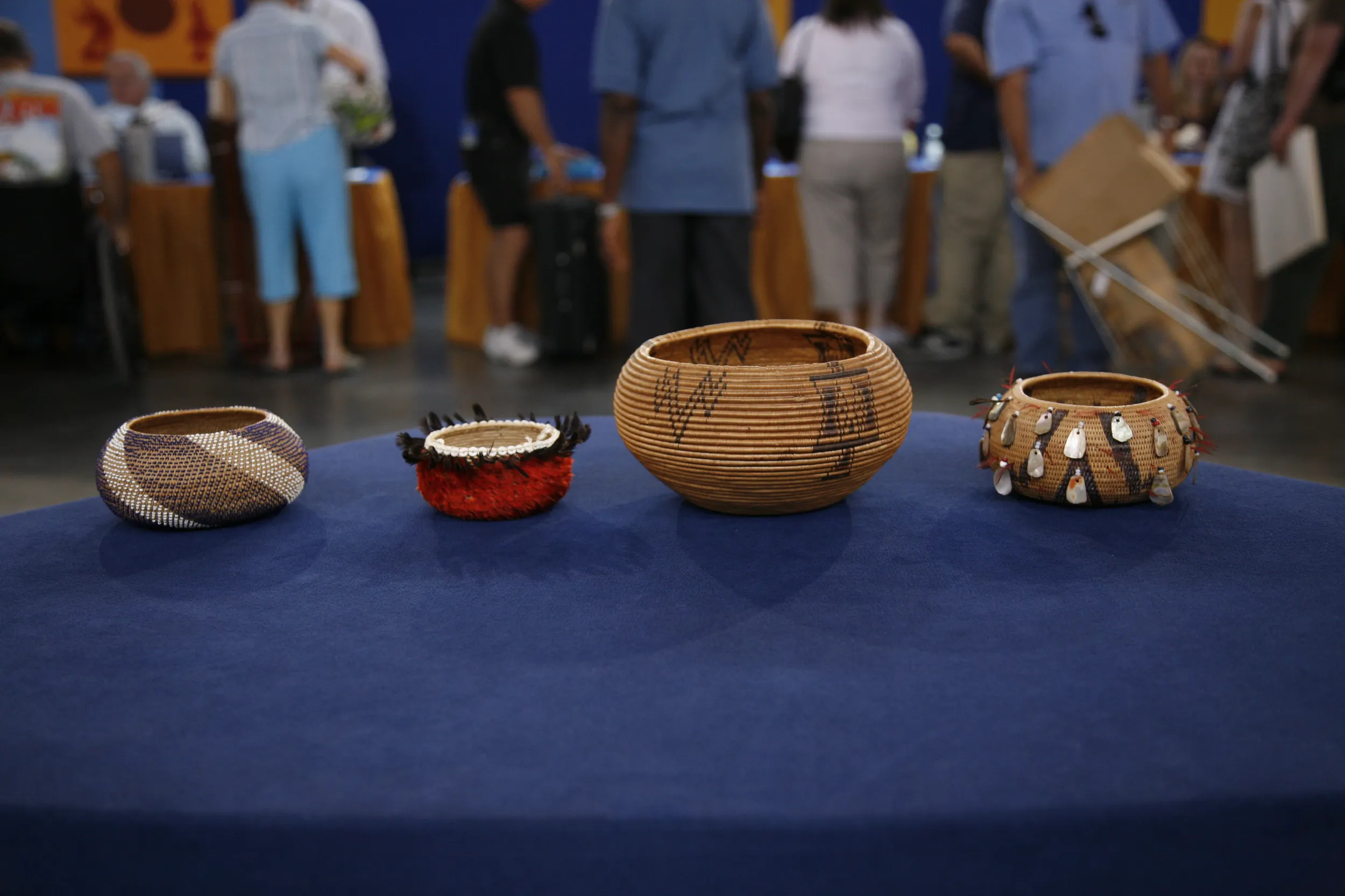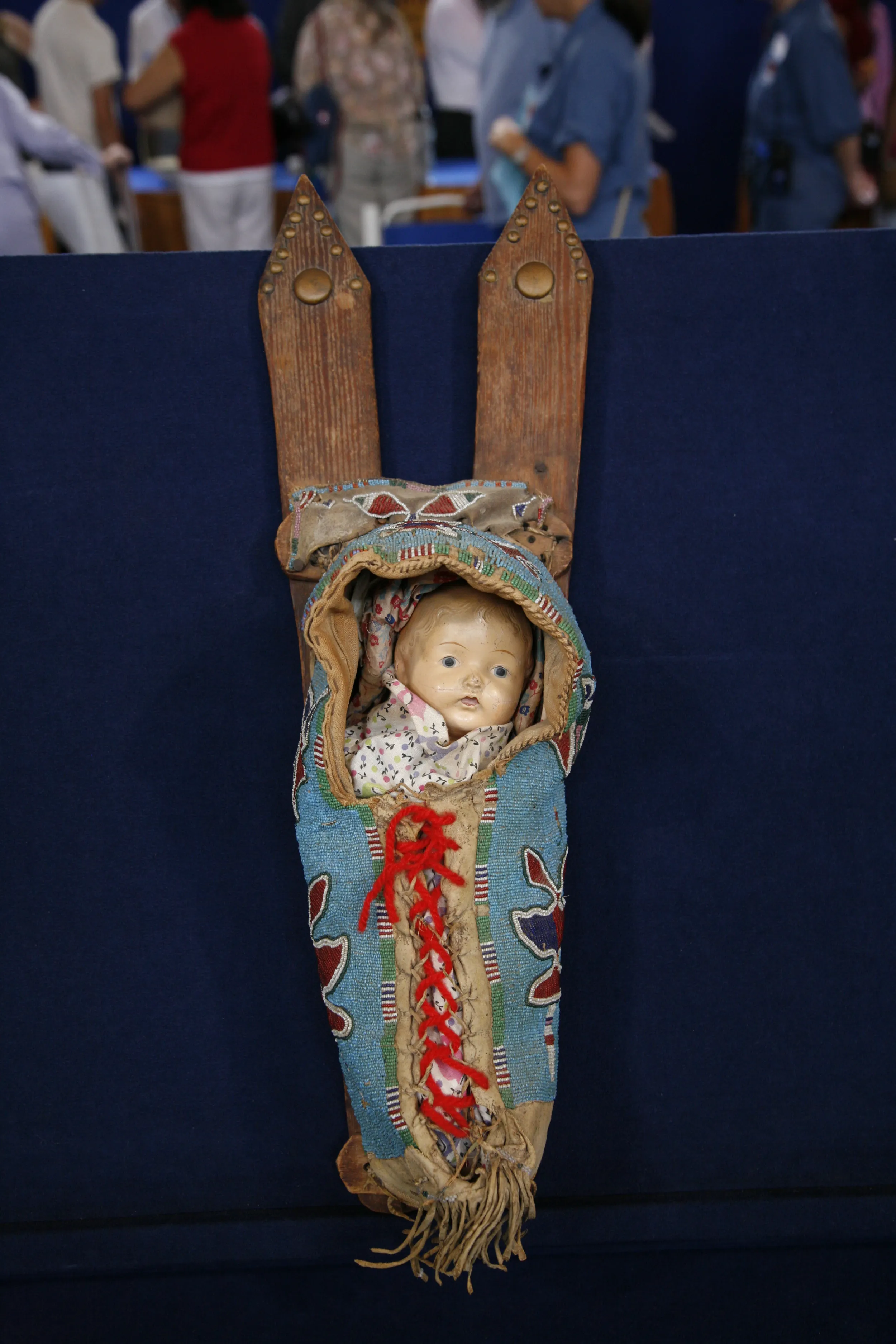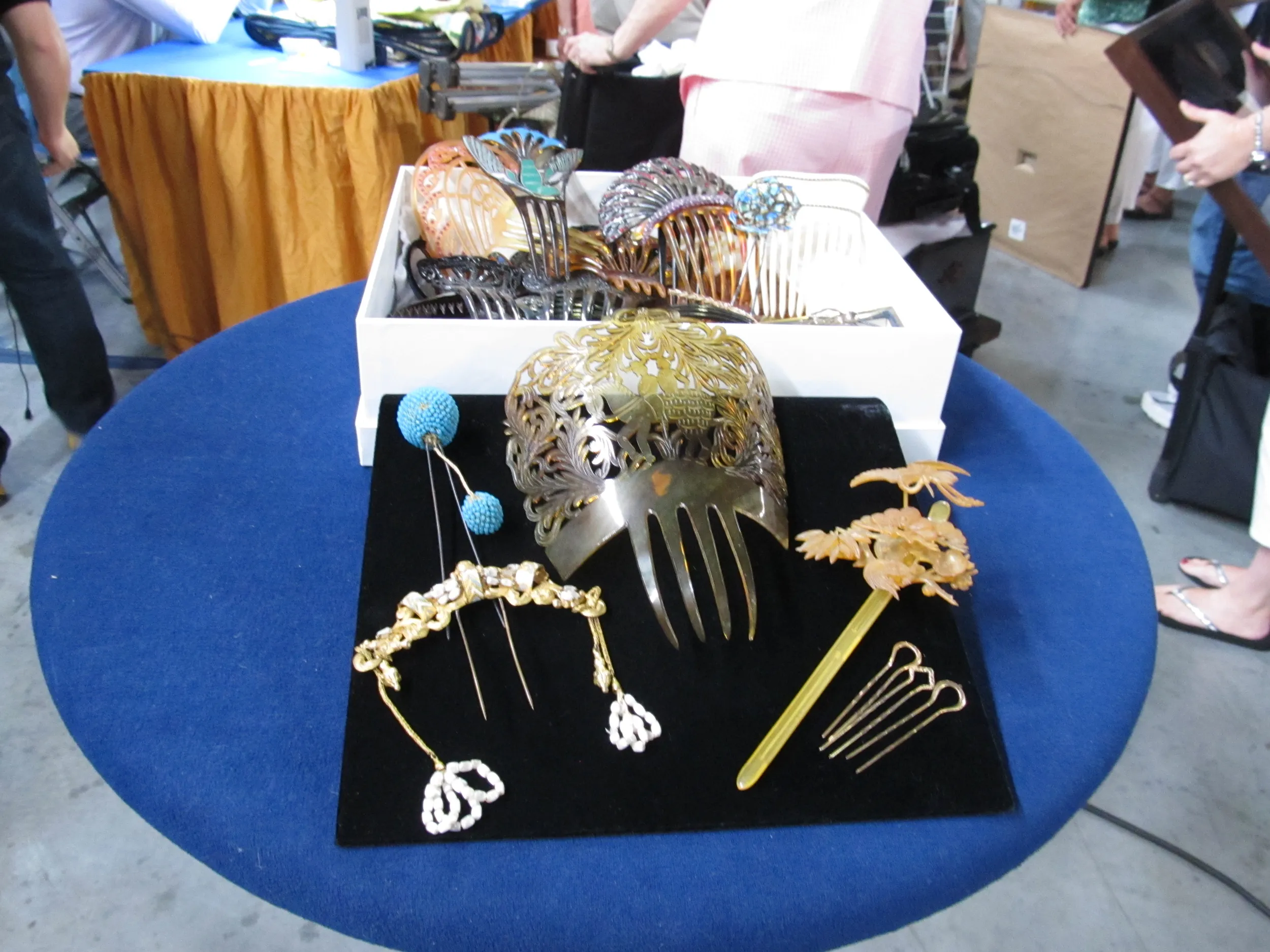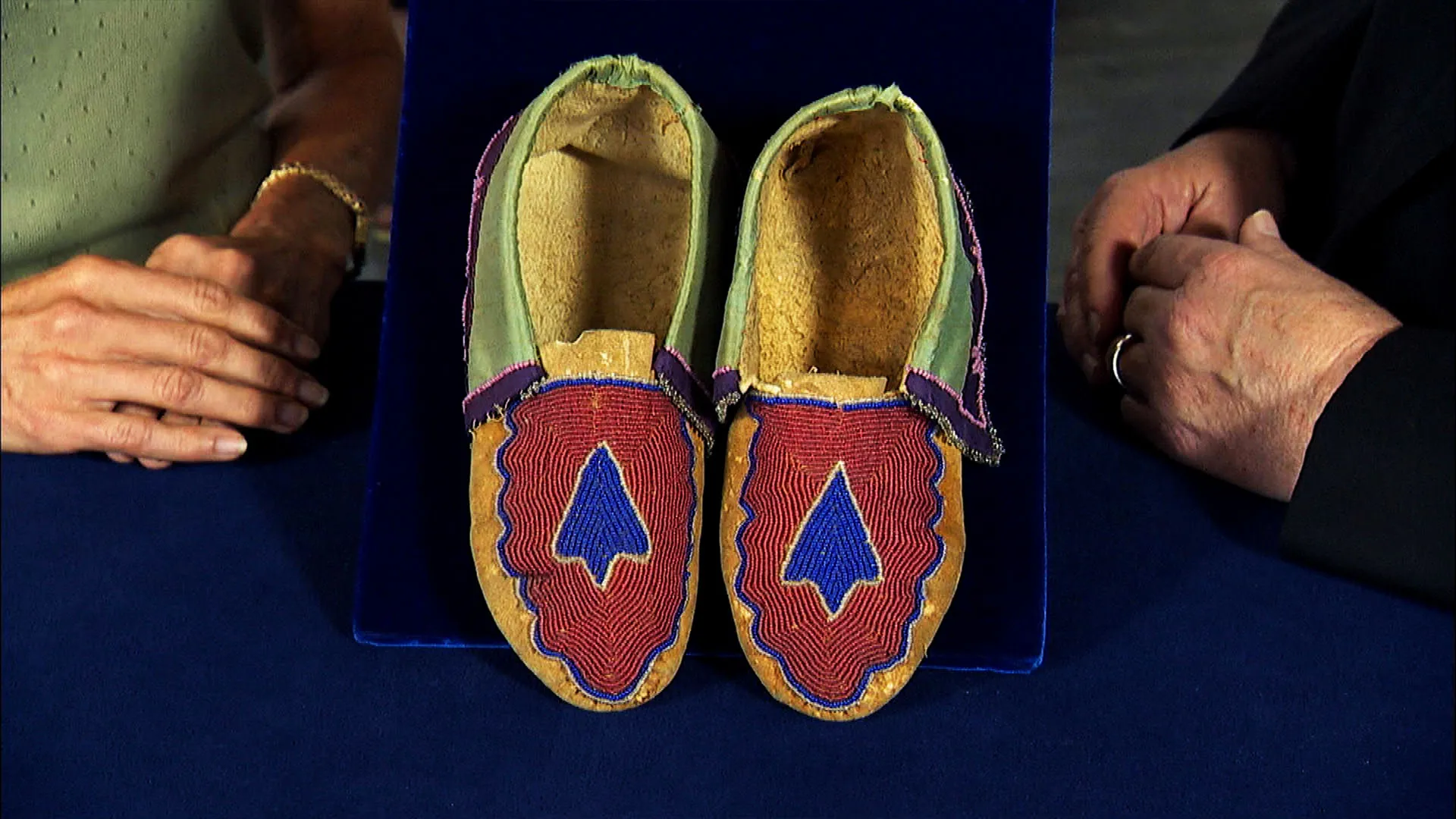GUEST: My great-grandfather was the last chief of the Kiowas. And his wife was named Guohaddle. And she was born in 1860, and she died in 1935. This is her right here.
APPRAISER: That is Guohaddle. And this is her husband, the Chief Wooden Lance.
GUEST: Yeah, Chief Wooden Lance of the Kiowas. He was the last federally recognized chief of the Kiowas.
APPRAISER: Right. And she made the dress?
GUEST: Yeah. This dress was actually made... it is a little girl's dress, and it was made in 1915, and it was made for my Aunt Lucy, who was the eldest daughter who was kind of the favorite daughter at the time. They made this dress for her when she was nine years old. And as she progressed in age, they certainly made bigger boots for her.
APPRAISER: Yeah.
GUEST: Until she outgrew the dress and could no longer wear the dress.
APPRAISER: Yeah, I saw it's a two-piece dress.
GUEST: Yes.
APPRAISER: Which is the old, old style, that Kiowa dresses were two-piece. This was the most important daughter of an important chief. And so she had the best of the best. In the American Indian world, this material is kind of late, even though it's 1916. The beadwork is fabulous. It was done by this woman who was a traditional bead worker from the 19th century. Everything about it's perfect. The Indian hides that were tanned were so much more beautiful than what the Europeans were doing, and the non-Indians. I mean, these things are like silk. They're incredibly beautifully done. Most of the beads are hand-cut Czechoslovakian beads made out of glass. The work is just outstanding. The Kiowas came from up north, probably close to Wyoming, and they moved down south into Oklahoma in the late 1700s, early 1800s, with horses.
GUEST: Yes, we ranged everywhere from with the Comanches, which were our allies...
APPRAISER: Right.
GUEST: We ranged everywhere from Kansas to lower Texas, all the way down to the Davis Mountains, and certainly went as far west as even to visit the Taos Indians at the Taos Pueblos.
APPRAISER: I was going to say Taos Pueblo, yeah.
GUEST: So we ranged quite far.
APPRAISER: And this piece is a treaty that Wooden Lance signed with the federal government?
GUEST: It says that he is chief of the Kiowas, and that to anybody that is shown this treaty, to treat him... give him no cause to break his promise to the federal government.
APPRAISER: And I see this was signed and dated 1899. I would think because of the history, the association, all the documentation, these things are probably worth between $12,000 and $15,000...
GUEST: Okay.
APPRAISER: ...on the commercial market.
GUEST: Mm-hmm. It will always remain in my family, and from me it goes to my daughter Adrian.

